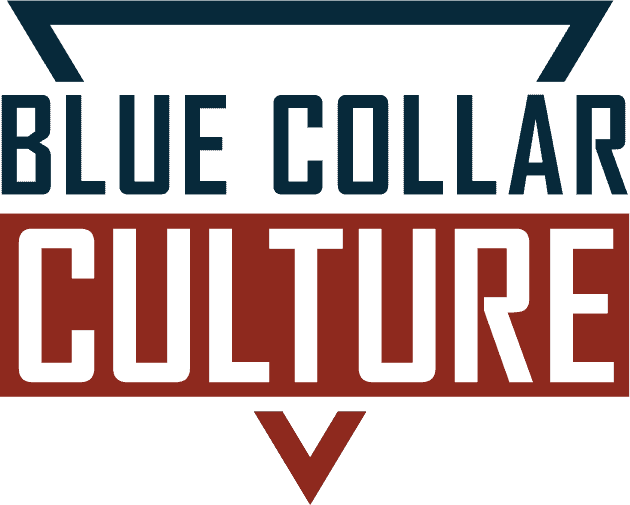
The success of any business depends on finding the right people. This means that asking the right questions is imperative if you want to hire the best. Ryan Englin and Jeremy Macliver discuss the hiring and interview process and share their insights. What should you ask your interviewees? Ryan and Jeremy flesh out what an optimum interview process should be and share their experiences in conducting job interviews. If you specialize in talent acquisition or are looking to beef up your hiring and interview process, then this episode is for you.
—
Asking The Right Interview Questions And Finding The Right People
I am here with Jeremy Macliver.
Welcome back, everyone.
If you haven’t tuned in to the episode that Jeremy and I talked about the hiring struggles that many businesses are having, make sure to check that out. We are going to continue that process. We want to talk about the next step. In the previous episode, we talked about getting a good job description out there defining what a good person looks like and how to make sure that you are driving for results when it comes to increasing the number of applicants that are applying for jobs. What we would like to do is talk a little bit more about the interviewing process.
You’ve got some people that have shown up, what are a couple of things that you can do to make sure that you are hiring the right people. We are going to talk about objective interview questions and focusing on the things that you cannot teach. In the end, we are going to give you a couple of example questions. We are going to give you a resource where you can get some more information. Jeremy, as you know, I geek out a ton on the interview process. I’m a super geek when it comes to interviewing. It’s one of my favorite parts of the recruiting process. I could talk forever on this. I want to know is what are some of the things that you see when you are talking to clients and you hear that they are struggling to find good people? When the interview process comes up, what are some things that you have seen that most likely not working for them?

I don’t know that I geek out on it but I have had to do much of it. It’s a fast-paced growing company. We are constantly working on how to streamline it, make it faster, simpler because you are trying to hire many people. Quite honestly, a lot of those interviews are not going to work out. I have done that. I have gone and sat in other people’s interviews just to watch and observe, and then I hear from my clients. The single biggest thing that I see right out the gate is that I know this interview is not going to work out.
In the end, the interview he walks in, they sit down, and the interviewer begins talking. They talk and talk and they don’t stop. They tell all about where the company is going, the dreams and the vision. The person just sits there, listens, and then they asked him some questions after feeling this euphoria about all this exciting stuff where this company is going and that person just regurgitates it back to them. They think that person is amazing. No, they are not. They did a pop quiz. You gave him all the answers right before it.
We had a new client who starts with us and he goes, “Here is what I use for my interview process.” It was something he got from a mastermind group he is a part of. I remember that the first step was to spend 20 to 30 minutes in the interview talking about how awesome your company is.
There's a level of confidence that goes with being a top performer. Those top performers, they're writing their own check right now. Click To TweetI said something when we are starting this thing that we know that most of them are not going to work out but that wasn’t always my mindset. I see that is not the mindset that everybody is always approaching this on. They are like, “I need people, I hope this works out” versus you know that a lot of them are not going to work out deep down but you are not approaching it that way. I’m always coaching, “Why don’t we look at this from a little bit of distance here as we are interviewing this person? Is this who we want on our team? If not, let’s go find that person and let’s figure out why we are not getting in front of the right people who don’t need another body.” We talked in the previous episode about A-players. You are only going to get a team of A-players if you only let in A-players or at least B, don’t take the C. That’s what we are talking about. It’s taking you in your mindset of, “Do I want this person to work for me?” in the interview.
One of the things that we are seeing a lot of people struggle with right now is getting enough people to even talk to. One of the things that drive this behavior is the fear of, “If I let him out of the office, another one gets away. If I let him off the job site, I may never see them again.” For most of the people that they are interviewing, that is a good thing. There is this fear of if they get away, then I’m stuck, then what? It perpetuates these behaviors of, “Let me keep selling the company. Let me sell the company, why we are awesome.”
There is no one sitting here saying, “Is this the good person I’m looking for?” Like we talked about in the previous episode that you know what good looks like or at least you know what bad looks like. It’s the inverse of that. If you know what good looks like, that is what should be happening in the interview process. It shouldn’t be, “Do they want to work here because we are awesome?” It should be, “Do I want them on my team because they are awesome?”
Hearing you said something about fear that a lot of people have, I have that same one and truly, we have to have that. You said, “If I let them out of this interview, they are going somewhere else and I’m going to lose them.” That is exactly right. It’s what we need to figure out in this interview, “Is this one I want to let go out and lose or is it one that I need to move fast on?” We are in a competitive marketplace. We do need to move fast on only the right ones. That is where the fear begins to cloud the entire decision versus if we ask some good questions and they keep leading us into, “This is the right one. We don’t want this one to go out and moves to the rest of the marketplace.”
I was with a client and they said, “We have three candidates that we haven’t interviewed yet.” They’ve got three applicants they hadn’t interviewed but there were certain that there is going to one that is the best out of them. I said, “We were not even to the interview, go in open-minded asking them the same tough questions that we are going to highlight here, then find out, which one it is. One of them is going to shine and may not be the one that you are thinking.” You have that point we want to move fast, we only want to be fast on the right ones.

Of those eight players that we talked about if you are a good employee, odds are you are a good employee. You know that you are going to perform well and you are going to be a good team player. You know that you are going to hit your metrics. There is a level of confidence that goes with being a top performer. Those top performers are writing their own checks. They know they are going to get a job. They know they are going to do it quickly. If we are dragging our feet, taking our time, not asking the tough questions, you might let the good ones go away and not even know it. That is something that I see happen a lot is, “We’ve got these applicants and I’m busy. I will call them next week.” By the time next week rolls around, the only ones that are still looking for work are the ones you don’t want to hire.
When you ask the top performers tough questions, they gain respect for you and those standouts. We see them where they are taking jobs that weren’t the highest-paid offer. They were there because they are like, “This company here has got something going on.” A lot of that came from the fact that the person sitting across from them was bold enough to ask them very tough and challenging questions. It showed that they were confident to have what it was going to take to create an A-team versus all the other interviews of this A player went to were going through the motions asking the questions, “It looks like you googled them because we all did that.”
Another thing too about this interview process, we don’t see this as much in the traits but it’s still out there. A lot of job seekers feel it’s a requirement to have a resume. I want to throw this out here. I don’t want to digress into resumes. If you are putting a lot of weight into the resume or the application that someone filled out and that’s leading you to go into the interview process with bias like, “This is the right person or this isn’t,” keep in mind that there are two types of resumes out there.
Those written by professional resume writers, the marketing experts of the job seeker world and those written by people that have never been taught how to write a resume. When you made that comment about a couple of people that they like and they were like, “This is the one.” Hold your biases aside and make sure you are interviewing that person well. Don’t put a lot of weight into the resume because the traits are not as big of an issue but they still show up. Those resumes are pretty worthless when it comes to figuring out who’s going to be the right person for you.
Honestly, I’m not looking for a professional interviewee. I look for a professional employee. Highly successful, I haven’t done a lot of interviews because they haven’t needed to. They don’t have as good at resumes and stuff. Good call out there.
That is something to keep in mind too. I can’t tell you how many times someone that a good one gets away because, “They didn’t interview as well as I needed them to.” We have a client that we have worked with for a while and they are constantly looking for good customer service reps. Customer service reps on the phone got to sound good on the phone. They take them in for the initial phone screen and they do a phone screen. In five minutes, they are like, “They don’t sound good on the phone. They sounded too nervous. They were too sketchy. They use too many “uhms.” They didn’t come across professional.” My response is always the same. Interviewing is stressful. If you are not making them feel comfortable in the first five minutes, letting them warm up and be their natural self in the interview, you are going to be extremely disappointed on both sides. The only people that are going to ace an interview like that are the ones that had fifteen jobs in the last three years so you are used to it.
Let’s jump into some of those questions that we should be asking when we are there and maybe teared up a little bit with the warm-up. Talk to us a little bit, how do we get that person raring and ready to give us their real who they are?
One of the things that I like to do as part of the interview process to let people be themselves is to remove the way we make decisions as employers out of the job seekers’ heads and into more of their hearts and more natural for them. I like to do a lot of processes. It’s funny because I run into a lot of people that are like of all the interview questions this one is the doozy. It trips up everybody. I’m like, “Why would you do that to the job seeker? Why would you hit them with something that is not a requirement for their job?”
If someone is working out in the field, you need to know that they are self-aware, have got some confidence in their skills, abilities and take safety. Safety is important to them because they want to go back home to their family. Why would we ask them like, “Why manhole covers are round?” or this weird crazy stuff that has nothing to do with the job. I always see people come right out the gate with this heavy like you need to spend half an hour thinking about the question and you are setting them up for failure.
When you ask the top performers really tough questions, they actually gain a respect for you. Click To TweetWhat we like to do to get people warmed up is we have some processes we set up. One of the things I like to see when I’m interviewing somebody is someone that is engaged right off the bat. It doesn’t mean that they are always making eye contact. I’m an authority figure but it does mean that they are there. They are present. Their cell phones are put away. They show up on time. A lot of times, what we will do is in the job description, we will put, “Just so you know for us early is on time and on time is late.” That might be important when you come to the interview.
Their first checkbox that they get is if they show up early because if they showed up five minutes early, that means they are listening, which means their behavior is in alignment with what we want. We might also ask them. When you come to the interview, make sure you sit in the second seat from the end in the lobby because we want to make sure they can follow instructions. We are not looking for them to have an intellectual conversation with them. Unless this person is a doctor or a scientist, the intellectual part of their job should be more in muscle memory. It should be more in, “I could do this. I’m confident in my skills and abilities.”
We are looking for those things. If you ask somebody, “How do you feel about being on time?” They are always going to tell you, “I’m always on time.” Why don’t we just test and see if they will be on time? I find that when you give some of those processes and the answers to the initial part of the test or the interview, it can soften the mood and lighten things up. As the employer, it can make it that you are less in your head and being more natural yourself.
Once we are there, they showed up and they are five minutes early. They sat in the chair if that’s how we have worded it. They have done whatever they prepped and ready to go. Help us jump into the interview most naturally with some recommendations and what are some of the questions?
The first thing I’m going to say as the interviewer, the employer, remember that if you want an applicant or the person you are interviewing to show up, be open and honest, it’s a good idea to do the same yourself. If you want someone to be natural and comfortable, it’s important to make sure that the interview is natural and comfortable for you as well. People have a tendency when they get into rapport with other people is to mirror what is happening. If you walk in and you are nervous and anxious. You are like, “I’ve got to get this person. I’ve got to get back to my desk.” Very often they are going to mimic that. They give you short responses. They are going to be straight with you but they also want to get the interview done as quickly as you are because there is this tension in the room.
The first thing you’ve got to do is you need to act in a way that is consistent with how you want the job seeker to act. When we jump into some of those questions, make sure that you are explaining why you are asking these questions or you are just providing some context. You are being open and honest. When we are interviewing, the first thing we should be doing in an interview process is interviewing for culture fit first, whether or not this person can swing a hammer efficiently. We can worry about it later because we can teach them to swing a hammer.
We can’t teach them to show up on time. We can’t teach them to respect our customers, the job site, to follow safety rules. We can’t teach those things as well. Let’s focus on the things that we can’t teach in the first part of the interview. Back to when we talked about defining good, ask questions or put them in a situation where you get to see if that person is the good person you are looking for. One of my favorite questions that I like to ask first off in the interview is, “Why do you want to join our team?” The wrong answer is, “It’s because my car payment is due,” which by the way, people think that they are being truthful, we have gotten that before.

Why do you want to join the team? Look for them having done a little bit of research about you. Make sure that they understand what you do. You will be surprised how many people apply for jobs and they have no idea what you do. That’s one of my favorite questions to get started. It allows them to be a little bit of dialogue. To your point where employers like to vomit a lot of lessons all about us, there is a little bit of opportunity to share with them. “What is it that you do? Why it’s important to you?” The interview should be a dialogue but make sure that you show up in a way you want them to show up and make sure that you both want to be there.
As you are talking about the why and that question, it makes me think that we have a website out there in the marketplace. I have always relied on that for the interview. Everybody writes to the website for the customer, not thinking about the fact that probably about half the time that website is viewed, it’s for employment. People are like, “I’m going to go to the interview there. They are going to scope it out. They are going to look at it.”
When you are asking some of those why questions, rely on the fact that there is an online presence that you have put out there that if they are interested, they are going to be able to constructively bring something from anything that they looked up in the past. If they are in a spot where you feel like they would have those technical skills because I do see and some of the traits that the guys go online as much or whatever that may be, they are a little bit more doers hands-on. Sometimes in those, you should recognize that.
You have to know your audience for sure. Another couple of other things that I like to ask in questions is to get to understand the person. We do this process when we are doing pre-hire assessments called an integrity test or an integrity assessment. There are a lot of people out there that think it’s okay to lie, steal. I don’t want to get into pre-hire assessments now but one of the things that you can borrow from those things is the fact that nobody is perfect.
One of the questions I like to ask is, “Tell me about a time you lied to your boss. Why did you do it and what was the outcome?” The wrong answer is “I have never lied to my boss.” I have had a boss and I have lied to my boss before. It might have been a small little white lie but I have done it before. Everybody has told their boss why they were late that wasn’t the real reason they were late or why a project was behind or why something broke. There was always a little white lie in it.
What we are looking for are the behaviors that we want on our team. We want to know that someone has recognized like, “I did it and it didn’t work out well for me or I did it and here was the outcome. Maybe it worked out, maybe it didn’t,” but they recognize that. Another one that I like to ask a lot is, “Let’s pretend for a moment that your boss asks you to do something and you disagree with doing that because it’s not the best thing for the customer. How do you handle that?” It’s a great way and there’s self-awareness in there. They are thinking about, “Are they putting the customer first?” There are a lot baked into these questions in how they respond. I’m not looking specifically for word-for-word right answers. I’m looking more for how do they process the answer to that question.
If you want an applicant or the person you're interviewing to show up and be open and honest, it's a good idea to do the same yourself. Click To TweetSome of what you have there, one of my favorite questions has always been from the last person I fired. As you are learning and growing the organization, there was at some point you have let somebody go just because they were not a good fit and they were causing some problems. Look at the scenarios around that are cluing you into, “I don’t want to make that same mistake again.” You are not going to directly ask them that. Whatever that was that caused the frustration of what you are looking to get out of your team, you don’t ask them very directly to create a situation. You maybe tell them a little bit of a story and say, “What would you do in this story?” Always let them have multiple answers that could be the right answer.
What you are doing is you are making them start to work, work in the job, situation, work through those things. You are more watching how they work than what they answer. They are going to do that when you put them out on the job site. Give them the situations that they are going to constantly face the superintendent come up to you and said, “We need to reschedule this.” How do you handle that? What do you do? Watch how they think. That is what you are after and that is what you are going to get when you move forward with them.
I have enjoyed this conversation. Thanks for having it with me. For our readers, the interview process can feel very intimidating and very overwhelming. If you want to get more information about how to develop this interview process, Jeremy and I have written a book together. It’s going to support you in making sure that you are hiring the ones you won’t want to fire. If you want a free download copy of that book, go check out our website at BlueCollarCulture.com. The book is also available on Amazon and some of the other online stores. Make sure you pick up a copy of it. It’s a very short read. It is 66 pages. We will walk you through some great interview questions, interview process and put some control back into your world when it comes to interviewing and finding the right people. Jeremy, thank you.
Thank you all for reading and see you next episode.
Important Links:
- Hiring Struggles – Past Episode
- Book – Unmasked: How to Hire the Ones You Won’t Want to Fire
- Amazon – Unmasked: How to Hire the Ones You Won’t Want to Fire
Love the show? Subscribe, rate, review, and share! https://bluecollarculture.com/podcast/
